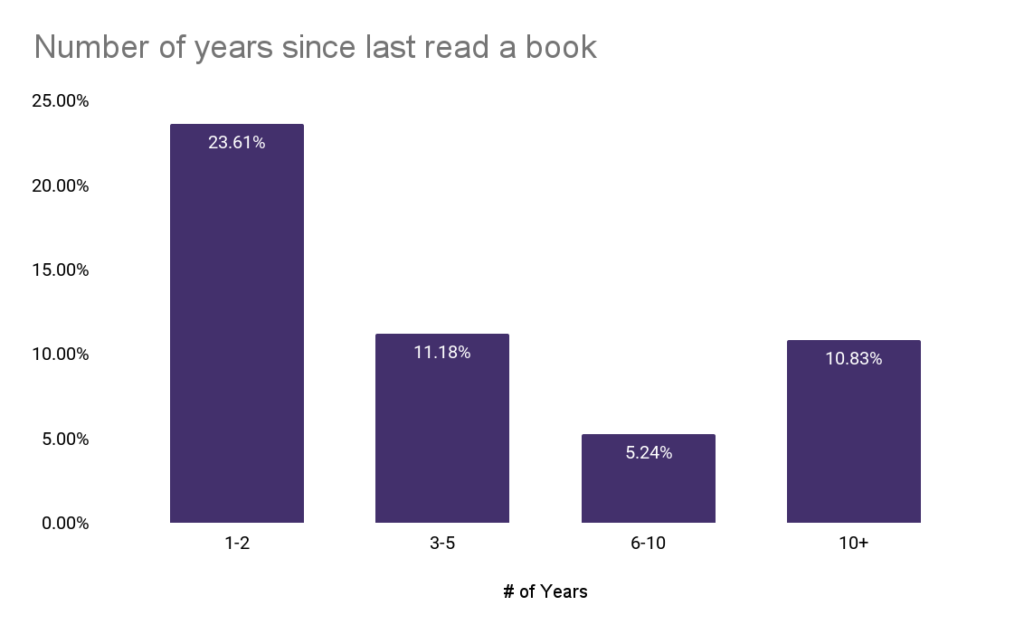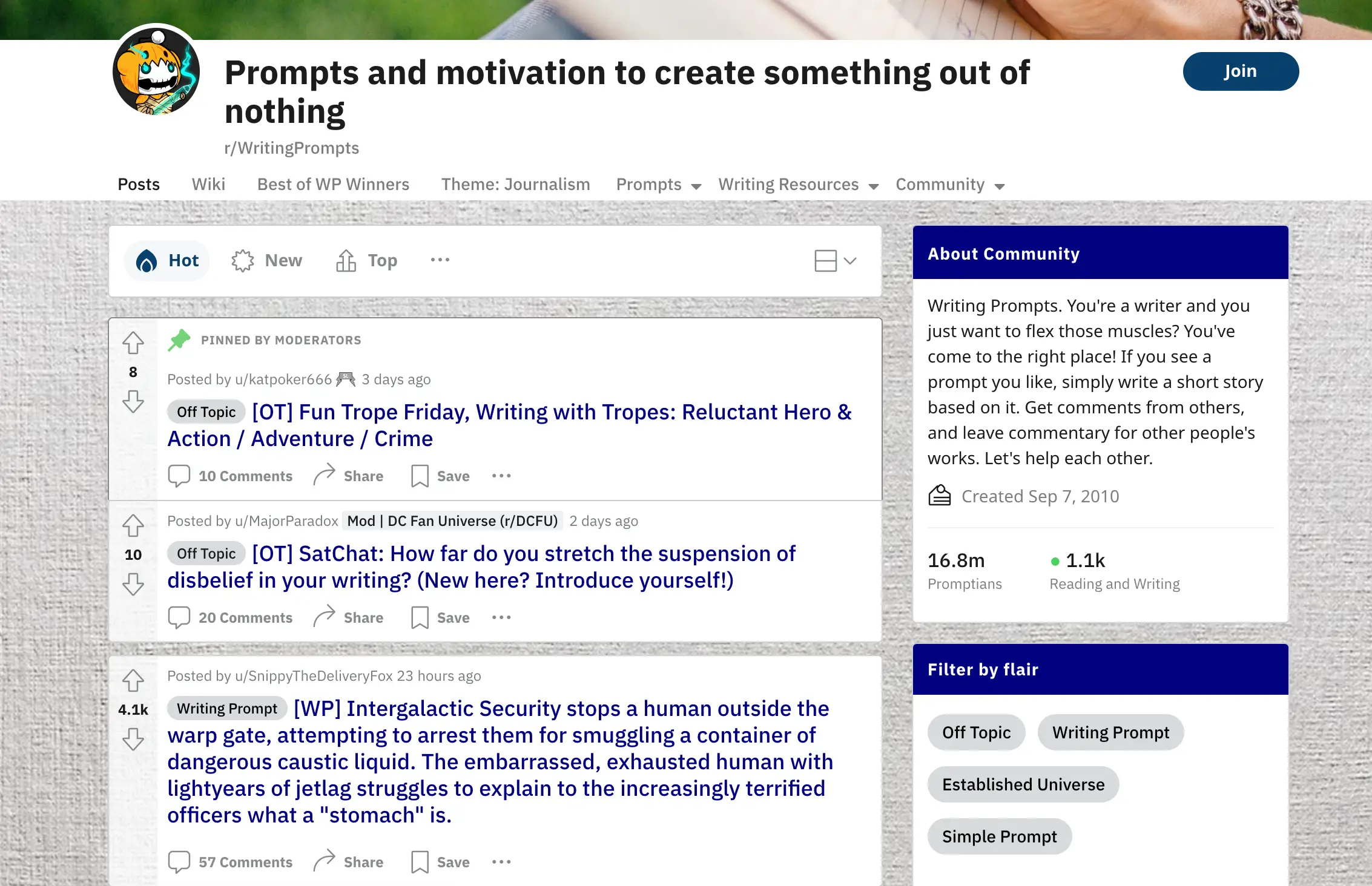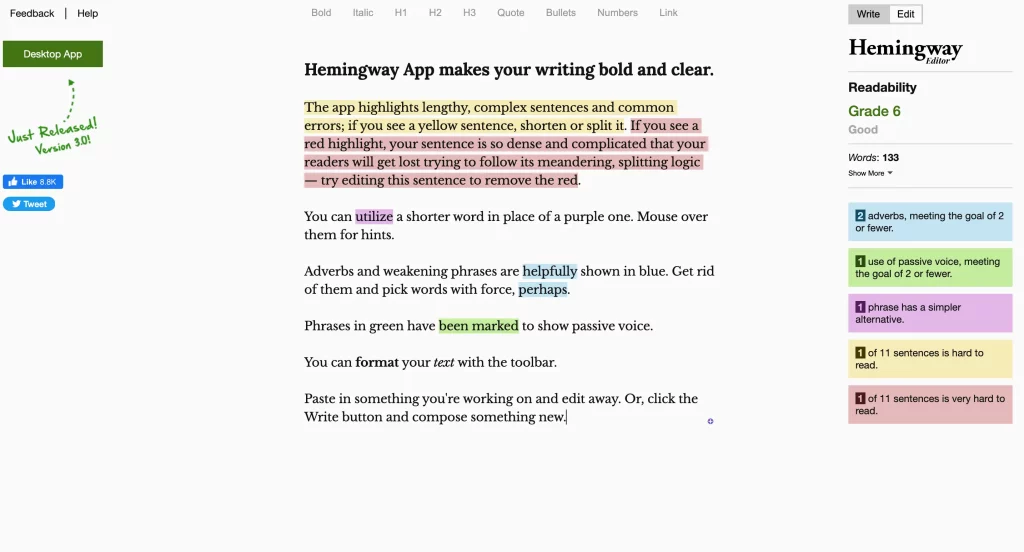Writing is an essential skill that everyone should have, but it’s not always easy to do. If you’re struggling with your writing, don’t worry, you’re not alone. I’ve been writing for 10+ years professionally and know what works and what doesn’t.
In this article, we’ll take a look at eight of the best content writing exercises you can do to become a better writer.
1. Freewriting
Free writing is a great way to improve your writing skills, and it’s a simple and easy exercise to do.
The idea behind free writing is to write without any restrictions, rules, or expectations. You simply sit down with a pen and paper or a computer and let your thoughts flow onto the page. Don’t worry about grammar, punctuation, or spelling errors. Just write whatever comes to mind without any judgement or self-censorship.
The goal of free writing is to break through any mental blocks you may have when it comes to writing. By allowing your thoughts to flow freely, you’ll be able to tap into your creativity and come up with new ideas that you may not have thought of otherwise.
You can set a time limit for yourself, such as 10 or 15 minutes, and just write continuously for that period of time. It’s important to not stop and think too much about what you’re writing, as that can disrupt the flow of ideas.
Try using a Pomodoro timer to stay focused and take breaks. This is one I like using because it includes lofi music.

Once you’re finished with your free writing session, you can go back and review what you’ve written. You may find that some of your ideas are worth exploring further, or you may find that you’ve come up with some interesting insights or perspectives that you can use in your writing.
2. Read More
I don’t know about you, but I love reading! I mostly read non-fiction about self-development, marketing, and mindfulness. That’s why I found it surprising when I learned 50% of Americans hadn’t read a book in the past year.

Reading good books is one of the most enjoyable ways to improve your content writing skills. Not only does it expose you to different writing styles and techniques, but it also expands your knowledge and vocabulary.
When you read good books, you’re able to see how authors use language to convey their messages effectively. You can analyze the way they structure their sentences, use metaphors and similes, and create vivid descriptions to draw readers in. By studying the writing of successful authors, you can learn from their techniques and apply them to your own writing.
Reading books can also inspire you to write better content. You may find that reading a certain author or genre sparks your creativity and motivates you to start writing yourself. By exposing yourself to different writing styles, you can also find your own unique voice as a writer.
Additionally, reading books can improve your knowledge and vocabulary. You may come across new words and concepts that you can incorporate into your writing, making it more informative and engaging for your readers.
So, if you want to improve your content writing skills, make sure to set aside some time to read good books. Whether it’s fiction, non-fiction, or poetry, reading can help you become a better writer by exposing you to new ideas, techniques, and perspectives.
Some of my favourite content writing related books are:
- Everybody Writes: Your Go-To Guide to Creating Ridiculously Good Content
- The Content Code: Six Essential Strategies for Igniting Your Content, Your Marketing, and Your Business
- On Writing Well
3. Practice Summarizing
Summarizing content and articles is a great content writing exercise that can help you become a better writer. Summarizing involves taking a long piece of content or article and distilling its main ideas into a concise and easy-to-understand format.
Try visiting your favourite blog (mine is Neil Patel’s) and summarize articles as a way to practice.

By summarizing content and articles, you can improve your content writing skills in several ways. First, you can practice condensing complex information into its most important points, which can help you become more efficient and effective in your own writing. This can also help you avoid information overload, which can be overwhelming for your readers.
Summarizing content and articles can also help you develop your critical thinking skills. When you summarize, you need to analyze the content and identify its key points, which requires a deep understanding of the material. This can help you develop your ability to think critically and analyze information, which are valuable skills in any field.
Another benefit of summarizing content and articles is that it can help you improve your writing style. When you summarize, you need to use concise language and clear, simple sentences. This can help you avoid unnecessary words and phrases, which can make your writing more engaging and easy to read.
4. Write Every Day
Practicing writing is one of the most important content writing exercises you can do to improve your skills. Writing is like any other skill–the more you practice, the better you get!

One way to practice writing is to set aside time each day to write. You can start with something simple, like writing in a journal or blogging about a topic that interests you. Over time, you can challenge yourself by tackling more complex writing projects, such as writing an article or a short story.
Another way to practice writing is to get feedback on your work. This can help you identify areas where you need to improve and give you a sense of what you’re doing well. You can ask a friend or colleague to review your work or join a writing group where you can get feedback from other writers.
It’s also important to focus on the process of writing, not just the end result. Don’t be afraid to experiment with different writing techniques, styles, and formats. Try writing in different genres or experimenting with different points of view. This can help you discover what works best for you and improve your writing overall.
In addition to practicing writing on your own, you can also take writing courses or workshops to improve your skills. These can be a great way to learn from experienced writers and get feedback on your work in a structured environment.
5. Use Prompts
Using prompts is a great way to jumpstart your creativity and improve your content writing skills. A prompt is simply a topic or idea that serves as a starting point for your writing. It can be a single word, a phrase, or a sentence that sparks your imagination and helps you generate ideas.
I suggest checking out the writing prompt subreddit to get inspiration and ideas. It’s also a fun way to pass the time!

There are many ways to use prompts for content writing exercises. One way is to simply set a timer for a certain amount of time, and then write freely based on the prompt until the timer goes off. This exercise can help you get your ideas down quickly without worrying about editing or perfection.
Another way to use prompts is to focus on a specific aspect of your writing, such as character development or descriptive language. For example, a prompt might ask you to describe a scene using sensory details or to write a dialogue between two characters with conflicting viewpoints.
Prompts can also be used to challenge yourself by pushing you outside of your comfort zone. For example, you might use a prompt to write from a different perspective, such as a first-person narrator or a different cultural background.
6. Practice Editing
Editing is a crucial part of the content writing process. It involves reviewing your work, identifying errors, and making changes to improve the overall quality of your writing. Practicing editing as a content writing exercise can help you refine your skills, catch mistakes, and improve the overall readability of your work.
Use the Hemingway App to catch errors and mistakes in your writing. It also scores the content’s reading level (typically, the lower, the better) and suggests various improvements. This will help you become a better editor and not make the same mistakes again.

One way to practice editing is to review your work with a critical eye. Read through your writing and look for areas where you can improve the clarity, flow, and organization of your content. This might involve reordering sentences or paragraphs, removing unnecessary words or phrases, or adding more detail to clarify your ideas.
Remember, it’s important to remember that editing is an ongoing process. Even experienced writers need to revise and refine their work to make it the best it can be. So, make sure to set aside time for editing in your writing process, and continue to practice and refine your skills over time.
7. Write Different Types of Content
Writing different types of content can be an effective way to improve your writing skills as a content writer. It can help you become more versatile and adaptable, and enable you to tailor your writing to different audiences and purposes.
One type of content you might consider practicing is blog posts. Blog posts are a popular type of content that can be used to share information, tell stories, and engage with your audience. They can vary in length, tone, and style depending on your target audience and goals.
Another type of content to practice is social media posts. Social media platforms like Facebook, Twitter, and Instagram offer an opportunity to share shorter, more visual content that can be more engaging and shareable. This type of content requires concise writing skills and an ability to communicate effectively in a limited amount of space.
You might also consider practicing longer-form content, such as whitepapers or e-books. These types of content require a more in-depth writing style, and often involve researching and synthesizing information from multiple sources. They can be a great way to establish your authority on a topic and provide value to your audience.
8. Get Feedback
Getting feedback from other writers is a valuable exercise that can help you improve your content writing skills. Having someone else read your work and provide constructive feedback can help you identify areas where you can improve and give you new perspectives on your writing.
One way to get feedback is to join a writing group or community. These groups often provide a supportive environment where writers can share their work, receive feedback, and connect with other writers. You can also join online writing communities where you can share your work and receive feedback from writers around the world.
If you’re a student of my academy, you gain access to the private Discord group plus feedback directly from me. This is one of the best ways to learn content writing, as it helps you fast-track your success and learning.
For illustration, I critique my student’s sales copy on my YouTube channel as well:
Another way to get feedback is to hire a professional editor. An editor can review your work and provide detailed feedback on areas like clarity, organization, and style. While this can be a more expensive option, it can be particularly helpful if you are working on a larger project, such as a book or an e-book.
When seeking feedback, it’s important to be open to criticism and to ask specific questions that can help you improve your writing. For example, you might ask for feedback on the clarity of your writing, the flow of your ideas, or the effectiveness of your argument. This can help the person giving feedback provide more targeted and useful advice.
Wrapping Up Content Writing Exercises
Writing is an essential marketing skill that can be improved with practice. I know it’s not everybody’s natural talent but don’t give up! By doing these eight content writing exercises, you can become a better writer:
- Try freewriting.
- Read more often.
- Summarize articles and content on the internet.
- Make writing every day a routine.
- Use writing prompts.
- Practice your editing skills.
- Write different types of content.
- Get feedback from other writers.
If you want to speed up the learning process and get mentorship from me, explore my online courses.














